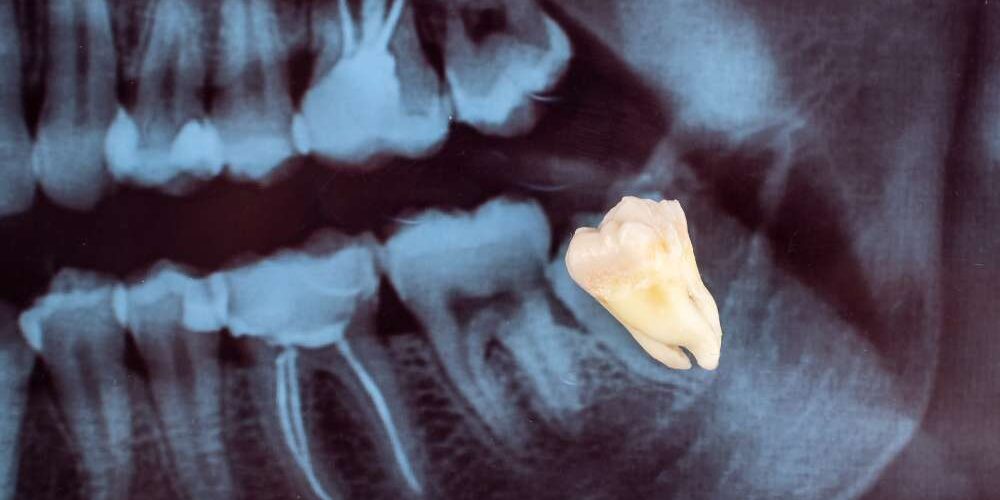Getting your wisdom teeth extracted is a common dental procedure that many people undergo, often to alleviate pain or prevent future dental issues. One of the most frequent questions patients have after this surgery is whether they can return to work the next day. The answer to this question depends on several factors, including the complexity of the extraction, your pain tolerance, and the nature of your job. At our office in Paramus, NJ, we always strive to provide comprehensive guidance to our patients to ensure a smooth recovery process.
Understanding the Procedure
Wisdom tooth extraction can range from a simple procedure to a more complex surgery, depending on the position and condition of your teeth. If your wisdom teeth are impacted, meaning they are trapped beneath the gums or in a tricky position, the surgery may be more involved and require a longer recovery time. Conversely, if the teeth have already erupted and are in a favorable position, the procedure might be quicker and less invasive.
The Recovery Process
The first 24 to 48 hours after the extraction are critical for proper healing. During this period, you may experience:
- Swelling: It is common to have swelling around the extraction site, which can peak within 48 hours.
- Bleeding: Slight bleeding or oozing is normal. Bite down on gauze pads as directed by your dentist to control this.
- Pain: Pain levels vary among individuals, but over-the-counter pain medications or prescribed painkillers can help manage this.
- Numbness: Local anesthesia may cause numbness in the lips, tongue, and cheek, which usually wears off within a few hours.
Factors to Consider Before Returning to Work
When deciding whether to go back to work the day after your wisdom tooth extraction, consider the following factors:
- Nature of Your Job: If your job is physically demanding or involves a lot of talking, you might need more time to rest. Physical exertion can increase blood flow to the extraction site, potentially causing more swelling or bleeding. Jobs that require minimal physical activity or can be done from home might allow for a quicker return.
- Pain Management: Effective pain management is crucial. If you can control the pain with medication and it doesn’t impair your ability to work safely and effectively, you might feel comfortable returning to work sooner.
- Post-Operative Care: Following post-operative care instructions is essential for a smooth recovery. This includes keeping the head elevated, applying ice packs to reduce swelling, and avoiding smoking or using straws, as these can dislodge the blood clot and lead to a painful condition called dry socket.
- Personal Comfort: Everyone’s pain tolerance and healing processes are different. If you feel up to it and can manage the symptoms, you might be able to return to work. However, if you’re feeling weak, dizzy, or in significant pain, it’s better to rest and recover at home.
Day-By-Day Recovery Timeline
Day 1: The day of the surgery is usually the most uncomfortable. You will likely feel the effects of the anesthesia wearing off, and the pain might start to set in. Plan to rest and avoid strenuous activities.
Day 2: Swelling and discomfort can peak on this day. It’s still advisable to rest and follow all care instructions. Some people with less physically demanding jobs might feel up to returning to work, but this is not common.
Day 3 and Beyond: By the third day, swelling should begin to subside, and pain levels generally decrease. Many people feel well enough to return to work at this point, but listening to your body is important.
Tips for a Smooth Return to Work
If you decide to go back to work the day after your wisdom tooth extraction, here are some tips to help you manage:
- Communicate with Your Employer: Let your employer know about your recent surgery. They might be able to accommodate your needs, such as allowing more breaks or providing a less strenuous workload.
- Pack a Care Kit: Bring a care kit with you, including gauze pads, pain medication, a bottle of water, and ice packs if feasible. This will help you manage symptoms throughout the day.
- Take It Easy: Avoid heavy lifting, strenuous activities, and bending over, as these can exacerbate swelling and bleeding.
- Stay Hydrated and Eat Soft Foods: Drink plenty of fluids and stick to a soft food diet to avoid irritating the extraction site. Smoothies, soups, and mashed potatoes are good options.
- Practice Good Oral Hygiene: Follow your dentist’s instructions for oral hygiene to prevent infection. This might include gently rinsing with salt water and avoiding brushing near the extraction site initially.
Our Office in Paramus, NJ
At our dental office in Paramus, NJ, we prioritize your comfort and recovery. Our experienced team provides personalized care and detailed post-operative instructions to help you navigate the recovery process effectively. Whether you have a simple or complex extraction, we are here to support you every step of the way. If you have any concerns or need additional guidance, don’t hesitate to contact us. Your health and well-being are our top priorities.
Conclusion
Deciding whether to return to work the day after wisdom tooth extraction depends on various factors, including the complexity of the surgery, your pain tolerance, and the nature of your job. While some people might feel well enough to resume work, others may need more time to recover. Listen to your body and follow your dentist’s advice to ensure a smooth and safe recovery. For more personalized guidance, feel free to visit our office in Paramus, NJ, where we are dedicated to providing the highest quality dental care.







